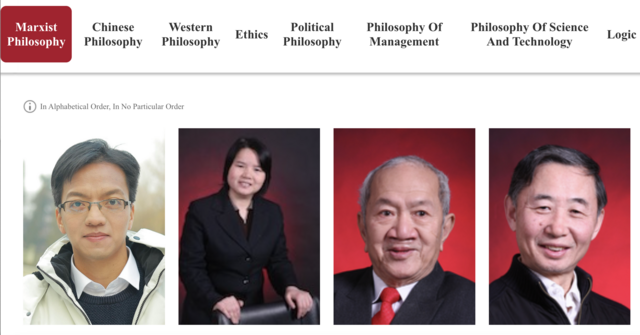The "QS TopUniversities" is out, ranking universities by subject:
"Over 200 universities have been ranked for philosophy degrees in this year’s subject rankings, with no new entrants in this year’s top 10. Four of the top 10 are universities from the US, with the UK, Germany, Australia and Canada also represented. Although only ranked in fifth place overall, the University of Oxford has the best score for the H-index indicator, a measure of the productivity and impact of a department’s research. "
The top 4 are NYU, LSE, Rutgers and Brunswick, LMU München is tied with Cambridge for place 6. Humboldt is 11th, KU Leuven is 19th. I was surprised to see that Wuhan is 23rd, the National University of Singapore and "Renmin (People's) University of China" together 25th, Sun Yat-sen University 27th and the Chinese University of Hongkong 28th. France, Austria and Italy are almost absent, as is Switzerland: among the top 100, we find Geneva and Zurich, well behind, for example, East China Normal University in Shanghai or the Universidad Panamericana in Mexico (not the UNAM, which has a great philosophy program). The ETH is 7th overall, after MIT, Imperial College, Oxford, Harvard, Cambridge and Stanford (in that order).
They do not say much about their methodology, but this: "We collect data from 16.4 million academic papers, and gather insights from over 151,000 academics and 100,000 employers. We focus on what matters most to students – things like student experience, global partnerships, research opportunities, and the quality of teaching." The "methodology" section specifically on the subject ranking helpfully adds: "Each of the QS rankings are compiled using a core methodology that employs a range of vital factors including student experience, university partnerships, research activity and faculty qualifications. All of our data is based on high-quality research and innovative analytic approaches." Apart from paper citations and H-index, 70% of the "indicators" for the philosophy ranking is called "academic reputation".
Wuhan's "School of Philosophy" is quite interesting - the two names I've recognised (Paul Patton and Thomas M. Besch) are both listed with email addresses of Australian universities. In total, there are 36 professors, of which 1 is a woman and she does not really seem to work in philosophy (her research area is described as "Cultural Psychology, Psychology of Aging, Health Psychology"). Renmin is similar: 11 male professors in Marxist philosophy, 8 men and 2 women in Chinese philosophy, 11 men in "Western philosophy" (I'm wondering what this might be) - out of roughly 120 people on the faculty list, I had not heard a single name ever before. The Sun-Yatsen department of philosophy has very little information in English (https://philosophy.sysu.edu.cn/english), but the faculty pictures also look at least 80% male. , the Chinese University of Hongkong does not have pictures.
I find this a striking fact, of which I was not aware. I know very little, however, about philosophy done in China and have no first-hand experience. I'd be very interested to read from someone familiar with both philosophy around here or in the US and philosophy in China. Please put your remarks in the comments below or start a "thread", by clicking the "Reply" button.
